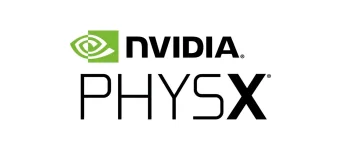NVIDIA just made a big move with their PhysX SDK after more than six years. They finally released all the GPU simulation kernel source code on GitHub under the 3-Clause BSD license. Before this, only parts of PhysX were truly open source. NVIDIA shared that they've included over 500 CUDA kernels that power features like rigid body dynamics, fluid simulation, and bendable objects. These represent some of the most advanced real-time simulation uses of CUDA and GPU programming available today. They hope people will use this release for learning and creating new projects.
The company also made their Flow SDK completely open source. This library handles real-time fluid simulation using a sparse grid system. We hadn't heard much about NVIDIA PhysX until recently when gamers discovered the new GeForce RTX 50 Series cards don't support it. This forced some users to try unusual fixes, like pairing an RTX 50 GPU with an RTX 3050 card dedicated just for PhysX calculations. Most modern games don't use PhysX, but older titles like Batman: Arkham Asylum and Mirror's Edge still rely on it.
Thanks to this source code release, talented modders might create fixes for these compatibility problems themselves. It would have been better if NVIDIA had fixed these issues directly, but at least the community can try to address them with the newly available code. If modders succeed, these old games might run properly on new hardware. The gaming community will watch closely for any mods that use this newly released GPU simulation kernel source code to fix these problems.
The company also made their Flow SDK completely open source. This library handles real-time fluid simulation using a sparse grid system. We hadn't heard much about NVIDIA PhysX until recently when gamers discovered the new GeForce RTX 50 Series cards don't support it. This forced some users to try unusual fixes, like pairing an RTX 50 GPU with an RTX 3050 card dedicated just for PhysX calculations. Most modern games don't use PhysX, but older titles like Batman: Arkham Asylum and Mirror's Edge still rely on it.
Thanks to this source code release, talented modders might create fixes for these compatibility problems themselves. It would have been better if NVIDIA had fixed these issues directly, but at least the community can try to address them with the newly available code. If modders succeed, these old games might run properly on new hardware. The gaming community will watch closely for any mods that use this newly released GPU simulation kernel source code to fix these problems.












